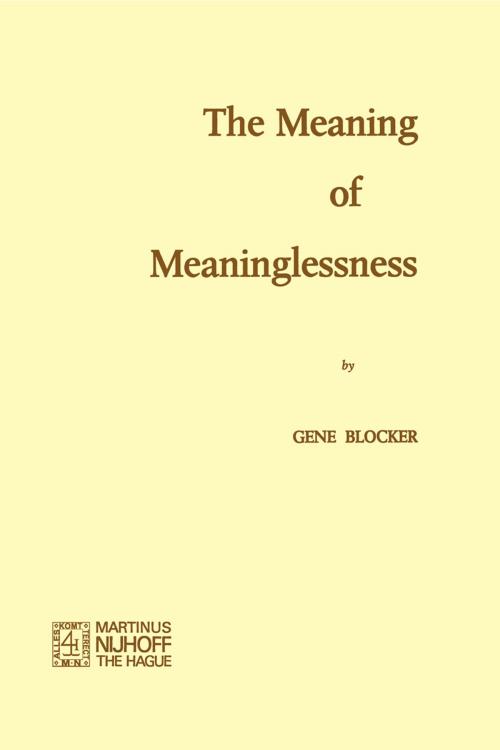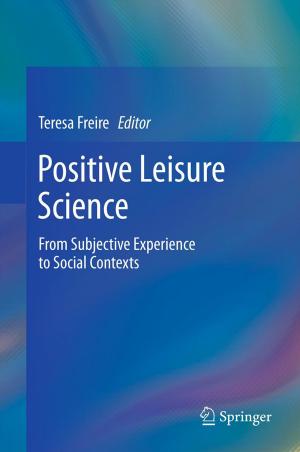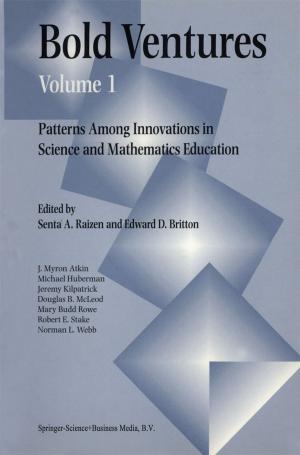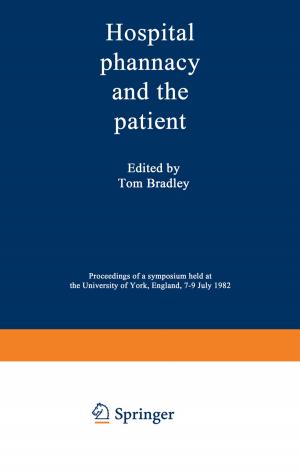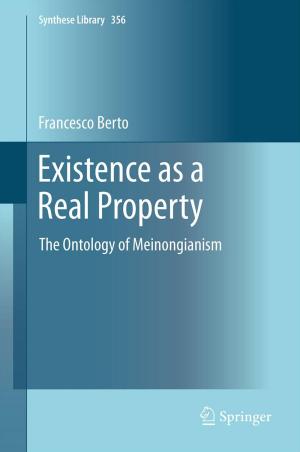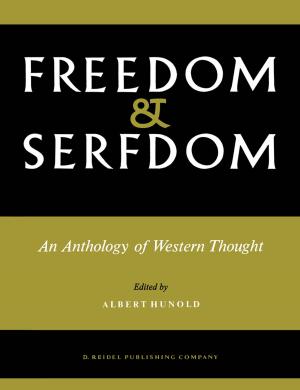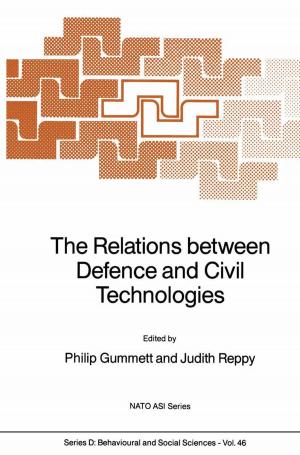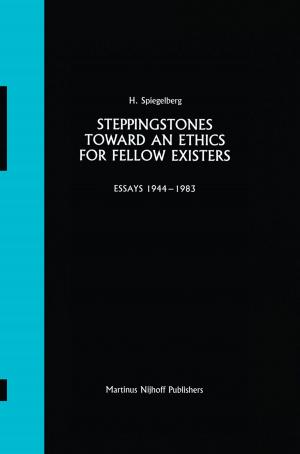| Author: | G. Blocker | ISBN: | 9789401020336 |
| Publisher: | Springer Netherlands | Publication: | December 6, 2012 |
| Imprint: | Springer | Language: | English |
| Author: | G. Blocker |
| ISBN: | 9789401020336 |
| Publisher: | Springer Netherlands |
| Publication: | December 6, 2012 |
| Imprint: | Springer |
| Language: | English |
What does "meaningless" mean? On the one hand, it signifies simply the absence or lack of meaning. "Zabool" is meaningless just because it doesn't happen to mean anything. "Green flees time lessly" is meaningless, despite a certain semblance of sense, because it runs afoul of certain fundamental rules of linguistic construction. On the other hand, "meaningless" characterizes that peculiar psycho logical state of dread and anxiety much discussed, if not discovered, by the French shortly after the Second World War. The first is primarily linguistic, focusing attention on emotionally neutral questions of linguistic meaning. The second is nonlinguistic, indicating a painful probing of the social psychology of an era, a clinical and literary analysis of 20th century Romanticism. On the one hand, a job for the professional philosopher; on the other hand, a task for the literary critic and the social historian. Is any useful purpose served in trying to combine these two, very different concerns? As the title of this book suggests, I think there is.
What does "meaningless" mean? On the one hand, it signifies simply the absence or lack of meaning. "Zabool" is meaningless just because it doesn't happen to mean anything. "Green flees time lessly" is meaningless, despite a certain semblance of sense, because it runs afoul of certain fundamental rules of linguistic construction. On the other hand, "meaningless" characterizes that peculiar psycho logical state of dread and anxiety much discussed, if not discovered, by the French shortly after the Second World War. The first is primarily linguistic, focusing attention on emotionally neutral questions of linguistic meaning. The second is nonlinguistic, indicating a painful probing of the social psychology of an era, a clinical and literary analysis of 20th century Romanticism. On the one hand, a job for the professional philosopher; on the other hand, a task for the literary critic and the social historian. Is any useful purpose served in trying to combine these two, very different concerns? As the title of this book suggests, I think there is.
